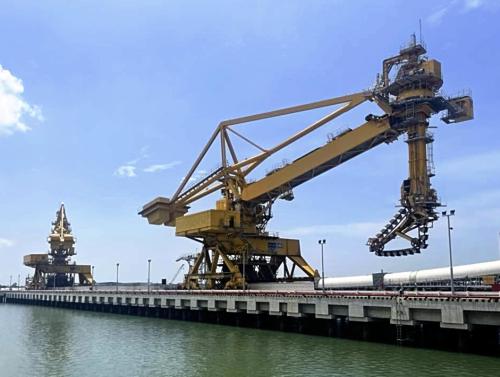Last week’s decision by Britain to join the China-backed Asian Infrastructure Investment Bank (AIIB) came as a big surprise to a number of Washington observers.
As my colleague Thomas Wright wrote on this blog, Britain is America’s closest ally and it is rather unusual for the two governments to disagree publicly. An anonymous White House official even rebuked Britain for its “constant accommodation” of China.
But yesterday, news reports confirmed that three large European countries –France, Germany and Italy- had also agreed to join the AIIB, which was launched by Chinese President Xi Jinping last year. They will probably be followed shortly by two close American allies, Australia and South Korea, making the $50 billion new bank what the United States feared most: a rival to the World Bank, the International Monetary Fund, and the Asian Development Bank, and ultimately, a financial institution that will help China raise its international profile and influence.
Although it initially seemed a miscalculation, the British decision to become an AIIB founding member without precondition has turned into a small diplomatic success for London, which tried to gain first mover advantage (other European nations, such as France, were about to make their own announcement).
Already the largest recipient of Chinese investment in Europe since 2014 (£10 billion), Britain now appears in a stronger position than some of its European neighbors to befriend China. Prime Minister David Cameron has spent much time cozying up to China; “No country in the world is more open to Chinese investment than the U.K.,” Cameron said in December 2013.
China has said it intends to further invest in British infrastructure, including railways, energy and water. It has already purchased nearly 10 percent of Thames Water, the country’s largest water company, as well as 10 percent in the firm that owns Heathrow International Airport. In addition, the City of London wants to become the world’s largest international exchange platform for the yuan, China’s currency. Several large Chinese banks such as China Merchant Bank and China Minsheng Bank have recently opened subsidiaries in London.
Having tried to lobby its allies against joining AIIB for the past few months, the Obama administration—which said it was concerned about the new bank’s governing structure—now appears to be the main loser. On the other hand, China, which just completed the annual session of its parliament on Sunday, seems to have won the show.
This once again demonstrates that China’s ability to divide Western nations among themselves is stronger than sometimes assumed. It also shows that U.S. interests increasingly diverge from Europeans who have—regrettably—little stake in the geopolitical situation in the Asia-Pacific. Since President Barak Obama was elected six years ago, the United States has insisted it wants to remain a global player in the region through its economic, political and military presence (the well-known “pivot to Asia” has been renamed “a rebalancing”), but the White House’s message on the AIIB has been confused and contradictory. It did not handle the situation well, and must now try to get back to the center stage.
Europeans, for their part, are mainly concerned with trade and investment issues. Their governments are now competing among themselves to attract Chinese investors. David Cameron, who is facing a general election on May 7, has so far been the best player in that game, but the French and the Germans should certainly not be discounted. Both countries have long-standing relations with China.
Meanwhile, the AIIB—soon to be based in Shanghai, Asia’s economic capital—will likely become a key tool of China’s new international strategy, and others—including Japan, which is the main country behind the Asian Development Bank—will have no choice but to accept it.
The Brookings Institution is committed to quality, independence, and impact.
We are supported by a diverse array of funders. In line with our values and policies, each Brookings publication represents the sole views of its author(s).




Commentary
Dividing the West: China’s new investment bank and America’s diplomatic failure
March 17, 2015